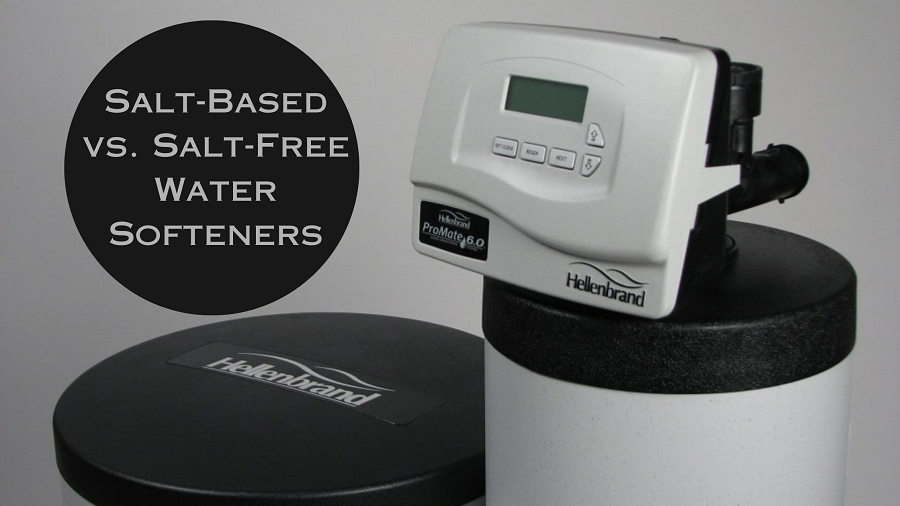
When it comes to ensuring the quality of your water supply, especially where hard water is prevalent, choosing the right water softener is crucial. It can make a significant difference in the taste, feel, and overall usability of your water.
Two popular versions of water softeners in Maryland include salt-based and salt-free. Let’s delve into the details and explore which might be the ideal choice for your home.
What are Salt-Based Water Softeners?
Salt-based water softeners are one of the most traditional and widely recognized solutions for combating hard water issues. They utilize a process known as ion exchange to remove calcium and magnesium ions from the water, which are responsible for water hardness. Through this process, the minerals causing hardness are replaced with sodium ions, effectively softening the water.
How Salt-Based Water Softeners Work
Salt-based water softeners operate through a resin tank that contains tiny resin beads with a negative charge. As hard water passes through the tank, the resin beads attract the calcium and magnesium ions while releasing sodium ions in exchange. Over time, the resin beads become saturated with calcium and magnesium, necessitating a regeneration cycle where a brine solution is used to flush out the accumulated minerals.
Pros of Salt-Based Water Softeners
- Effective Softening: Salt-based water softeners are highly efficient at removing hardness minerals, resulting in noticeably softer water for bathing, cleaning, and appliances.
- Proven Technology: These softeners have a long-standing track record for delivering reliable results and improving water quality.
- Economical: Despite initial installation costs, salt-based systems generally have lower operational expenses due to the relatively low cost of salt.
Cons of Salt-Based Water Softeners
- Sodium Content: The water treated with salt-based softeners contains higher sodium levels, which might be a concern for individuals on low-sodium diets.
- Environmental Impact: The brine discharge from regeneration cycles can potentially harm the environment when not properly managed.
Maintenance and Costs of Salt-Based Water Softeners in Maryland
Maintaining a salt-based water softener in Maryland involves occasional replenishment of the salt reservoir and monitoring the resin beads for optimal performance. While installation costs may vary, ongoing expenses mainly revolve around salt purchases and occasional resin replacement. However, the effective reduction in water hardness and extended appliance lifespan make salt-based systems a cost-efficient investment in ensuring your home’s water quality and functionality.
What are Salt-Free Water Softeners?
In the water treatment industry, another compelling option to consider alongside salt-based systems is the salt-free water softener. These are devices that make your water feel softer without using salt. They don’t remove minerals but change them in a way that they don’t stick to surfaces, preventing scale buildup in pipes and appliances. This helps keep your water pipes and appliances working well and makes your skin and hair feel better. They are also more environmentally friendly because they don’t create salty water waste.
How Salt-Free Water Softeners Work
Salt-free water softeners employ different mechanisms to address water hardness. Instead of removing minerals from the water, they use a technology called Template Assisted Crystallization (TAC). This process transforms the hardness minerals into tiny crystals that remain suspended in the water and do not adhere to surfaces, effectively preventing scale buildup.
Pros of Salt-Free Water Softeners
- No Sodium Addition: One of the significant advantages of salt-free systems is their sodium-free operation. Unlike salt-based softeners that add sodium ions to the water, salt-free systems leave the water’s natural composition intact.
- Low Maintenance: These softeners have minimal maintenance requirements since they do not rely on resin beads that need regeneration or frequent salt refills.
- Environmental Friendliness: With no brine discharge, salt-free systems have a smaller environmental footprint compared to salt-based softeners.
Cons of Salt-Free Water Softeners
- Effectiveness: While salt-free systems are effective at preventing scale buildup, they may not provide the same degree of water softening as salt-based systems. Some users might notice a difference in the “slick” feeling of the water.
- Upfront Costs: These softeners can have a higher initial cost compared to salt-based systems. However, the long-term savings on maintenance and salt refills can balance out this upfront investment.
Maintenance and Costs of Salt-Free Water Softeners in Maryland
Salt-free water softeners are known for their minimal maintenance requirements. Since there are no resin beads to regenerate or brine tanks to refill, the ongoing costs are significantly reduced. Additionally, the absence of salt usage contributes to lower operational expenses over time.
Comparing Salt vs. Salt-Free Water Softeners: Making an Informed Choice
When it comes to selecting the right water softener in Maryland, weighing the benefits and drawbacks of salt-based and salt-free systems is essential. Both options offer distinct advantages and considerations that can significantly impact your water quality, health, and environmental footprint. Let’s dive deeper into the key aspects of comparison to help you make an informed decision.
Effectiveness in Softening Water
Salt-based water softeners are renowned for their robust performance in combating water hardness. They excel at removing calcium and magnesium ions, resulting in a noticeable difference in water quality for various household tasks. Bathing, cleaning, and appliance longevity can all benefit from the thorough softening achieved by these systems.
On the other hand, salt-free water softeners prioritize scale prevention through crystallization. While they may not deliver the same level of water softness, they excel in extending the lifespan of your plumbing and appliances by preventing mineral buildup. This makes them a suitable choice for those seeking a gentler approach to water treatment.
Environmental Impact
Concerns about environmental impact are valid in today’s eco-conscious world. Salt-based water softeners generate brine discharge during regeneration cycles, potentially impacting local waterways. In contrast, salt-free systems produce no brine discharge, making them more environmentally friendly and aligned with sustainable practices.
Health Considerations
Individuals with dietary restrictions or health concerns related to sodium intake might prefer salt-free water softeners. These systems do not add sodium to the water, ensuring that your drinking and cooking water remains as close to its natural state as possible. Salt-based systems, while effective, can introduce higher sodium levels to the water.
Installation and Maintenance
Installation of both salt-based and salt-free water softeners should be carried out by professionals to ensure proper functioning. Salt-based systems require periodic salt refills and resin bead maintenance, while salt-free systems boast minimal upkeep. The absence of resin beads also means fewer chances of clogs or malfunctions, reducing the need for maintenance over time.
As you contemplate the ideal water softener solution for your Maryland home, remember that both salt-based and salt-free options have their merits. If you seek the utmost water softness and are comfortable with managing salt usage, a salt-based system might be your choice. Alternatively, if you prioritize environmental responsibility, scale prevention, and minimal maintenance, a salt-free system could be the answer.
Frequently Asked Questions about Water Softeners
As you consider the best water treatment solution in Maryland, it’s natural to have questions about salt-based and salt-free water softeners. We’ve compiled answers to some of the frequently asked questions to provide you with a clearer understanding of these systems and their benefits.
Are Salt-Free Water Softeners Safe?
Yes, salt-free water softeners are safe to use. They operate without adding chemicals or sodium to your water supply. Instead, they use a natural process called Template Assisted Crystallization (TAC) to prevent scale buildup. This means that your water’s mineral content remains untouched, ensuring its safety for consumption and everyday use.
Are Salt-Free Water Softeners Good for Hair?
Absolutely. Salt-free water softeners can contribute to healthier hair. By preventing mineral buildup, these systems help maintain the natural softness of your hair, making it more manageable, smoother, and easier to style. You’ll likely notice a difference in the texture and appearance of your hair after switching to a salt-free water softener.
Do Salt-Free Water Softeners Help Dry Skin?
Yes, salt-free water softeners can help alleviate dry skin. Hard water can strip your skin of its natural oils, leading to dryness and irritation. By preventing mineral deposits on your skin, salt-free systems can help retain moisture, leaving your skin feeling softer and more hydrated.
Beware of Magnet-Based Softeners
While exploring water treatment options, you might come across magnet-based water softeners in Maryland that claim to solve hard water issues. It’s important to be cautious of these claims. Scientific evidence supporting the effectiveness of magnet-based systems is lacking, and they are generally regarded as ineffective and unreliable. For true water softening and scale prevention, opt for proven solutions like salt-based or salt-free systems.
Find the Best Water Treatment Company Near You in Maryland
If you are looking for the best “water treatment companies near me”, your search ends here. Our top-rated water treatment company, Peninsula Water Conditioning, specializes in delivering crystal-clear, soft water solutions in Maryland. With a team of experts ready to assist you, finding effective water treatment solutions has never been easier.
Our knowledgeable team can help you evaluate your specific water quality needs and guide you toward the most appropriate water treatment solution. Whether you choose a salt-based or salt-free water softener, our goal is to ensure that you enjoy the benefits of soft and healthy water and maintain the optimal performance of your household appliances and plumbing systems.
Contact us at 410-341-6500 or toll-free at 800-616-2644 for a free consultation with one of our water treatment experts. Alternatively, you can also email us at sales@peninsulawater.com for general queries. We will be happy to help you.
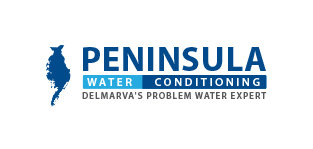

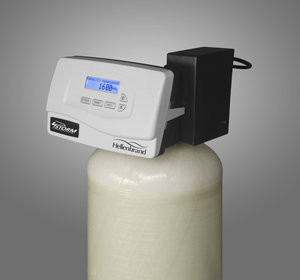
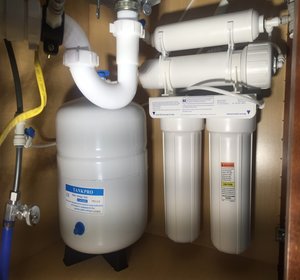
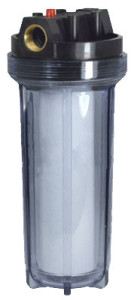
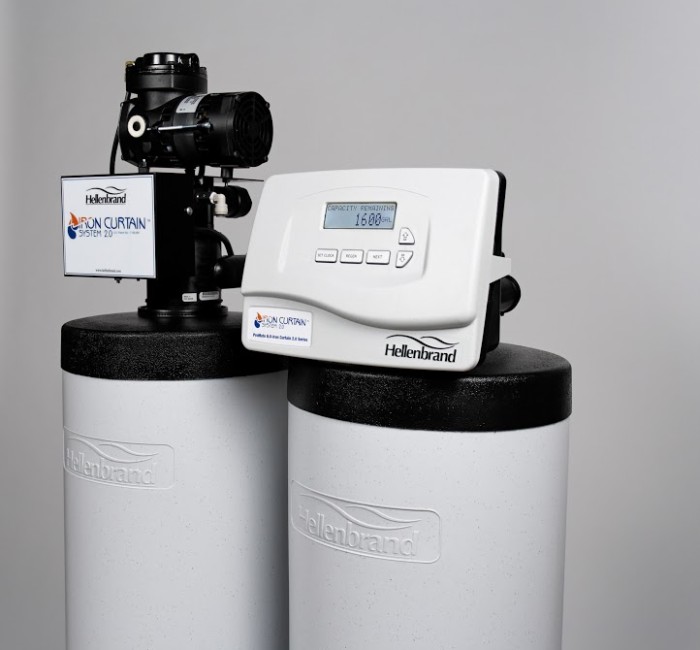
No Comments